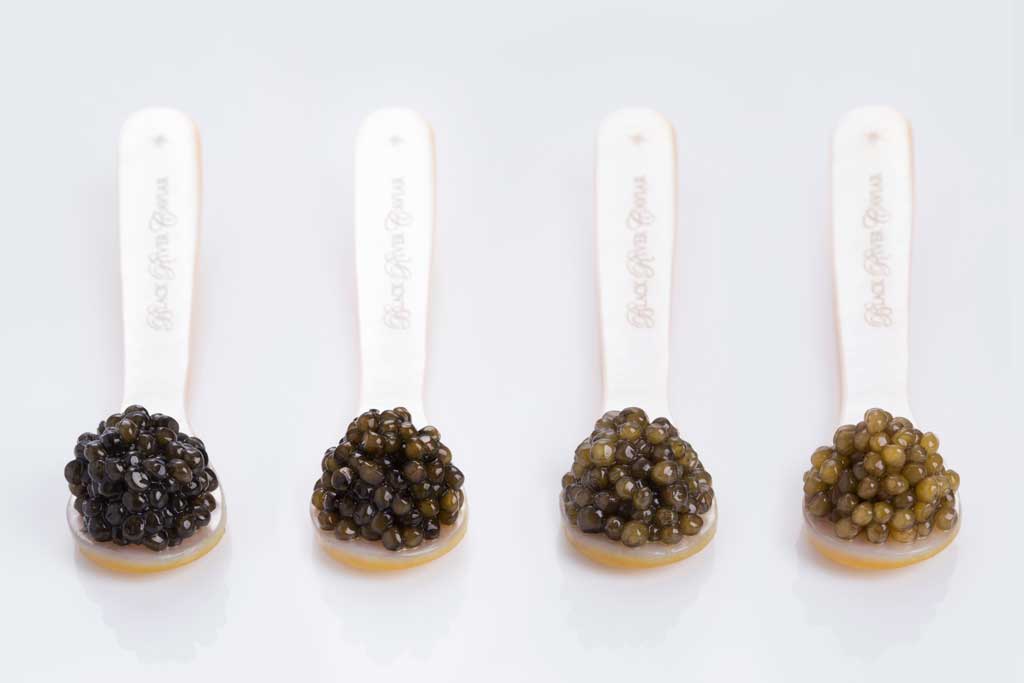
Caviar? That delicacy we often only see in the movies. Whilst it may seem a little intimidating to some, caviar (otherwise known as fish eggs) doesn’t have to be foreign. Here we explain how to choose, store and eat caviar. Plus, you'll learn its many health benefits.
What exactly is caviar?
Caviar refers to the salted eggs (roe) of a variety of fish species. Depending on the country, caviar can come from other fish including sturgeon, salmon, steelhead, trout, lumpfish, whitefish and carp.
Why eat caviar?
You may be thinking, why would I want to eat fish eggs, but surprisingly it has a host of benefits. It contains plenty of vitamins and minerals intended to nourish you inside and out. It’s high levels of omega-3 boost immunity and is said to alleviate symptoms of depression. Caviar has also become a prominent beauty aid and is used in luxury beauty house, La Prairie facial products.
How to choose caviar?
Just like anything, there is different varieties of caviar. Caviar from different types of fish means it differs in size, texture and flavour.
At Gourmet Life, we partner with farms across the globe working with nature and using sustainable methods in the most pristine waters. We are also the only importers of organic caviar in Australia.
Whether you wish to indulge in the finest Iranian Beluga, Oscietra that is clean and briny on the palate, or simply want to garnish a dish with the finest trout roe, our expert staff will guide you to what is best for you.
Types of caviar available:
- Adamas Albino Ruthenus
- Adamas Asetra
- Adamas Siberian Baerii
Polanco Baeri
- Kaviari Oscietre
- Kaviari Kristal
- Per Se Naccarii Traditional Organic Caviar
- Black River Russian Golden Oscietra
- Black River Siberian
- Pyrinea Trout Roe
How to care for and store caviar?
Caviar is extremely unpreserved and needs to be refrigerated from the moment it's taken from the fish to the time it's eaten. Pasteurized caviar, or roe that has been partially cooked, has a longer shelf life.
Storage tips:
- Store caviar in the coldest part of the refrigerator.
- Once opened, it should be consumed within a week. You can store an unopened tin of fresh caviar for 2-3 weeks, while pasteurized caviar can last for 3-4 months before opening.
How to eat it?
Caviar doesn’t have to be a once in a lifetime treat. It can be used as a topping for nearly any savoury dish or simply enjoyed on its own. Perhaps with a champagne?
It’s important never to cook caviar as it will toughen quite a bit. If including it in a recipe, always add it towards the end of cooking, or as a final garnish.
When serving, choose bowls and utensils made on non-reactive materials such as glass, plastic, or wood. Try to avoid using easily oxidized metals, such as silver or cheap stainless steel, as this reacts to caviar giving it a metallic taste. No thanks.
Purchase caviar from Gourmet Life. Get in-store or contact us for delivery. Find out more.
